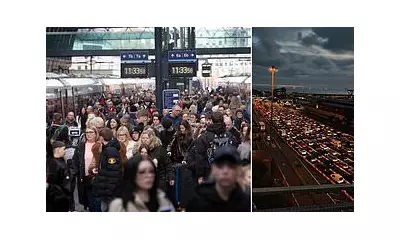
A financial phenomenon known as the 'singles tax' is placing an immense and often hidden burden on people living without a partner, making it significantly harder to achieve financial stability.
The Heavy Price of Solitude
This so-called tax isn't an official government levy, but rather the extra financial cost single people incur because they cannot split essential living costs. This extra financial burden is estimated to be thousands of pounds per year, as singles face the full weight of rent, utilities, and groceries alone.
Financial wellness coach Betsy Westcott explained the systemic issue, stating that everyday costs and even some tax benefits are often structured around households with multiple incomes, inherently disadvantaging those who live by themselves.
A Personal Struggle in a Shared Economy
The reality of this financial pressure is vividly illustrated by individuals like 31-year-old Kate Fancourt. Having rented alone for two years, she is currently fighting a £40 weekly rent increase on her one-bedroom apartment.
"I don't think people know how hard it is, financially, to live alone," Ms Fancourt shared in a recent TikTok clip. She described the constant financial juggling act as exhausting, saying, "Every year my rent goes up, I have to reshuffle all my expenses. It's an exhausting month of negotiations and comparisons."
The financial strain is not just a matter of budgets; it has profound social consequences. Ms Fancourt noted that her network is "slowly sinking" as her financial situation begins to isolate her, a sentiment echoed by many others online.
The Data Behind the Struggle
Research quantifies this challenge. Data from the Australian Bureau of Statistics found that singles spend about three per cent more per person on goods and services compared to couples.
The situation is even more dire for single parents, who spend a staggering 19 per cent more compared to couples living with their children. Specific iSelect research showed that singles in Australia with no kids paid about £6,100 more per year compared to double-income earners with no children.
The concept of the singles tax first gained attention in air travel, where solo travellers noticed airlines charging higher fares for single bookings compared to those for two people. In America, some have seen price jumps of $80 or more simply for flying solo.
A Widespread Experience of Financial Isolation
The online response to stories like Kate's reveals a community feeling the same pinch. One person commented, "I love living alone but it's so tiring. Every decision is yours, every bill you have to pay it, there's no 50/50."
Another highlighted the social sacrifice, stating, "My friends who are in relationships don't understand that sometimes I just can't do things because it's too expensive. My network of people had greatly shrunk because I just can't afford to keep up."
This collective experience underscores a growing issue where the simple act of living alone carries a significant financial premium, forcing many to choose between financial solvency and an active social life.





